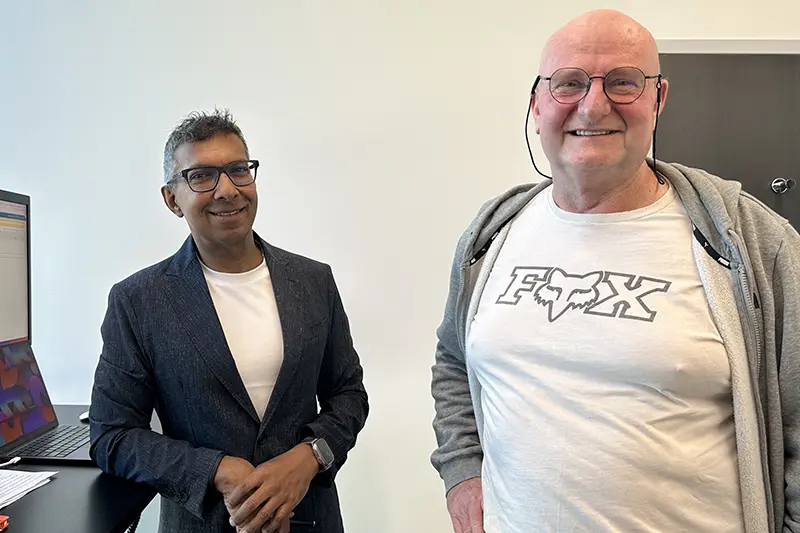(L-R) Dr Prasad Cooray and Mr Peter Moulding
When Peter was diagnosed with stage four pancreatic cancer, he was determined to take things one step at a time. With limited treatment options available, he was referred to the Jreissati Pancreatic Centre at Epworth, where our team supported his enrolment in a clinical trial that offered a new path forward.
“I just thought, well, I’ll do what I’ve got to do and hopefully they’ll operate and fix it,” Peter said.
Peter was recruited to the ACCENT clinical trial through the Centre. The trial investigates AMP945, a novel Australian-developed drug from Amplia Therapeutics Limited, designed to enhance the effectiveness of chemotherapy. AMP945 works by targeting a protein that forms a fibrous barrier around pancreatic tumours, which can prevent treatment from reaching the cancer. By switching off this mechanism, the drug may help chemotherapy work more effectively.
Peter received treatment over several months, supported by our multidisciplinary team.
An extraordinary outcome
When it came time for surgery, doctors removed the remaining tumour tissue, and were stunned by the results. There was no sign of cancer.
“I actually called the pathologist and said, are you sure you’re looking at the right specimen?” said Dr Prasad Cooray, oncologist at the Jreissati Pancreatic Centre. “I’ve never seen anything like this before.”
Peter had achieved a pathological complete response, an extremely rare outcome in metastatic pancreatic cancer. Only one other case like this has been recorded globally.
Looking ahead
Now in remission, Peter is embracing life beyond cancer. He’s stepping back from work, spending time with family, and planning trips he never thought he’d take.
“This is a highly unusual finding,” said Dr Cooray. “Every win we need to celebrate.”
Why clinical trials matter
Peter’s story is a powerful reminder of the impact clinical trials can have, and the importance of early referral to a specialist centre. At the Jreissati Pancreatic Centre at Epworth, we are committed to providing rapid access to care, personalised treatment pathways, and opportunities to participate in cutting-edge research.

